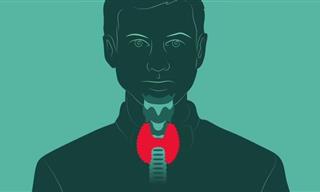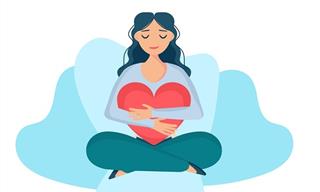
What is Acupuncture and whom is it suitable for?
Acupuncture is a form of alternative medicine that is considered to be one of the core components of traditional Chinese medicine. This method of healing is based on the insertion of fine needles into certain pressure points in the body, in order to alleviate symptoms of diseases which disrupt our natural balance. Although the needs are usually thinner than a hair and don’t hurt, this treatment method isn’t suitable for people who are scared of needles. If you have problems with blood clotting, you should consult a doctor before choosing this type of treatment, as should pregnant women, since some acupuncture methods are not suitable for them.
How is the treatment performed?
At the beginning of the process, the patient tells the acupuncturist about their medical history and the problems that are bothering them now. The area of pain or problem is then examined in the body, followed by a personal treatment plan, during which the goals, treatment methods, and necessary meetings are mapped. Finally, the acupuncture procedure is performed, which involves inserting sterile needles into a number of points that affect the relevant organs or systems, just as in the case of the pressure points.
The needles aren’t always inserted specifically in the painful area, but at the points that correlate to it, so that sometimes pain in one area of the body will be treated with acupuncture in a different area, such as pain in the top part of the foot being treated with acupuncture in the palms of the feet. Relief and results vary from patient and patient and from one medical problem to another, meaning that some might make do with 4 treatments and others might require 10 or more.
What are some possible side effects?
After treatment, you may see blue marks in the areas where the needles were inserted, while some patients, especially those at the beginning of treatment, may feel slightly dizzy or tired. This usually goes away after several treatments.

9 problems that can be treated with acupuncture
1. Treating colds and sore throat
Conventional treatment for colds, the flu, and sore throats are only about relieving symptoms, and part of it, for example, with the treatment of antibiotics, can suppress the immune system. Acupuncture is not intended to replace traditional treatment in cases of flu or colds, however, it does help strengthen the immune system and relax the body, thereby alleviating the coping with a sore throat usually accompanied by headaches, fatigue, and weakness. For those who perform the treatment during a cold or flu, acupuncture helps remove phlegm and soothes coughing. Acupuncture is especially effective for people suffering from a recurrent sore throat, as it reduces the frequency of these cases.
2. Relieving menstrual pain
Many women suffer from various levels of pain and discomfort due to cramps that accompany the menstrual cycle, and in some, these pains project onto the legs and back and can be accompanied by depression, fatigue, and headaches. All of these symptoms can have a serious impact on women’s lives their daily conduct. The hormonal solution to these problems is often accompanied by a variety of side effects, which causes many women to avoid them.
Acupuncture is very effective in treating the various types of pain associated with menstruation and can strengthen the organs affected by it, help in hormonal balance and release the blood flow in the body affected by the cramps. It is also effective in treating and regulating irregular menstrual cycles. Unlike traditional therapy or painkillers, acupuncture is tailored to each woman according to the problems that bother her.

3. Slowing signs of aging
One of the various acupuncture specialties is facial rejuvenation. This is a unique form of acupuncture that aims to help build collagen, lifting drooping eyelids, reducing the appearance of bags under the eyes and even tightening double chins. Acupuncturist Paige Bourassa, who specializes in treatments of this type, notes that in 12 treatments, it is often possible to achieve a smoother, younger skin appearance.
4. Coping with back pain
Due to our modern Western lifestyle, which includes many hours of sitting and a lack of exercise, almost every one of us has suffered from back pain in different areas. Acupuncture has been found to be effective in coping with back pain, and this has been confirmed in several studies in the field. In a study conducted in Germany, 1,162 patients with chronic back pain were divided into 3 groups, one of whom received acupuncture treatment, the other received acupuncture at random points, and the third received conventional therapy, including physiotherapy and painkillers. Forty-seven percent of the patients in the first group reported an improvement in their condition, compared to only 12% of the patients in conventional therapy.

5. Calming digestive disorders
Acupuncture treats a variety of gastrointestinal problems, ranging from constipation to irritable bowel syndrome. Conventional treatment often only deals with the symptoms these organic send out as signals instead of the real problems they suffer from. Chinese medicine believes that achieving balance in the organs of the digestive process, whether the spleen or stomach, is important and possible, and by using acupuncture points affecting their functioning one can reduce bloating, calm heartburn, and experience a positive effect on bowel movements and treatment of many other problems.
6. Helping with problems in sex life
Because the Chinese approach is holistic in terms of human health, an acupuncturist will also try to find the mental and emotional connections that may cause many problems in some patients. In some cases, the source of headaches, for example, is the presence of pressure or "stuck" emotional energy that causes the body to tighten and contract so that by relaxing the nervous system, the headache itself can also be treated. In the same way, one of the problems that can be resolved, whether directly or indirectly by treating another problem, is a problem in the patient's sexual life that results from stress or abnormal blood flow to the genitals. In women, a treatment designed to relieve symptoms of polycystic ovaries, for example, can relieve physical pain caused by sexual intercourse, and may, therefore, contribute to a healthier and more satisfying sex life.

7. Treating migraines
A migraine is a type of headache that can paralyze many people and disable them from activity for hours, and even days, on end. Often the only treatment available to migraine sufferers is painkillers, which don’t work in all cases and may cause dependence. The acupuncture procedure is effective for many migraine sufferers, since acupuncture causes the body to release endorphins and serotonin, which contribute to the relaxation of muscles that tighten during the pain attack, which affects the pain receptors in the body, contributes to pain relief and provides relaxation.
8. Relieving asthma symptoms
Asthma attacks cause contractions of the bronchi, which allow airflow in and out of the body, resulting in a shortness of breath. Although acupuncture is not a substitute for an inhaler and is not intended to cure asthma, it acts as a complementary therapy that helps reduce inflammation frequencies that cause contraction and helps body organs recover from attacks. In most cases, acupuncture is not done during the attack but after it.

9. Alleviating Carpal Tunnel Syndrome Pain
Monotonous activities that exert pressure on our wrists, such as prolonged use of a keyboard and computer mouse, have led to an increase in the number of people suffering from carpal tunnel syndrome, which causes pain, numbness and or tingling of the area. This syndrome may interfere with daily functioning, and the proposed treatment generally involves the use of anti-inflammatory drugs. A combination of acupuncture and special exercises for stretching the hand and practicing proper sitting in front of a computer can promote normal blood flow to the area, relieving the pain and preventing worsening of the syndrome. A lack of treatment may lead to a worsening of the syndrome and even to surgery.
 Go to BabaMail
Go to BabaMail






























